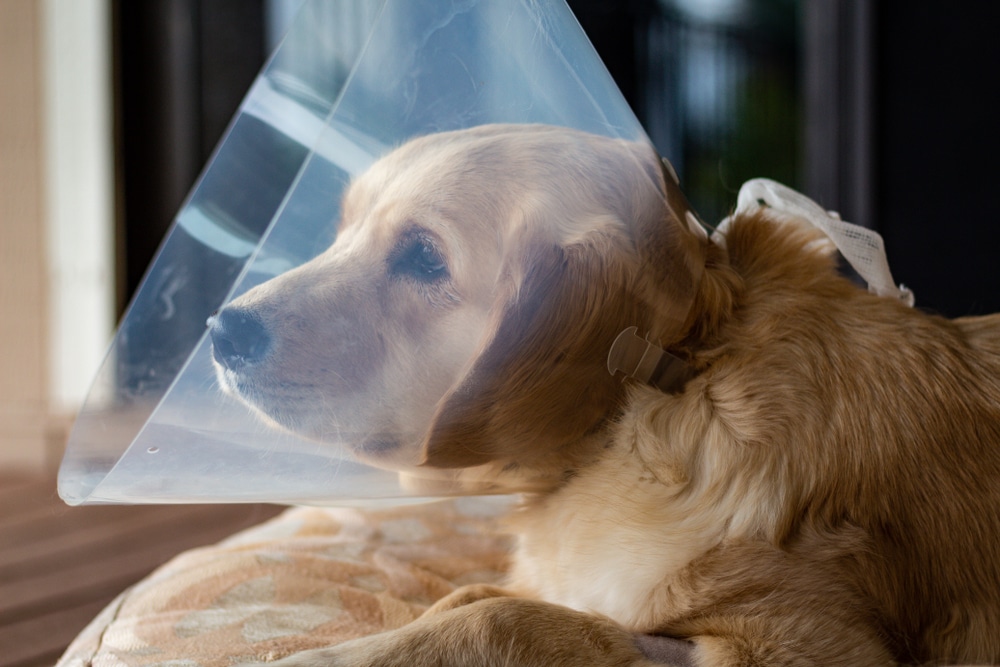Is Fluffy being naughty and marking his territory on your brand-new sofa? Do you go out for a walk and end up avoiding every other dog because you think he will rip them all apart if he could? If so, it might be time for you to consider a trip to the vet for a little snip. But should dogs be spayed or neutered?
Spaying or neutering a dog is a conversation you’ll want to have with your vet. There are pros and cons to having or not having these procedures. For example, spaying or neutering a dog makes them less likely to be aggressive, but it could also make the dog gain weight easier. In the end, the choice is yours but always consult with a professional first.
Table of Contents
Let’s Explain What Dogs Getting Spayed Or Neutered Means

Before we can continue discussing this topic, we would like to give you a little explanation of what spay and neuter mean.
A spay is a surgical procedure where vets remove the reproductive organs of a female dog. Neuter is a surgical procedure where vets remove the reproductive organs of a male dog.
Both procedures are pretty straightforward, and vets always do them under general anesthesia. Female dogs may need a few more days to recover. This is because of the length of the incision, and they may need a bit more TLC compared to male dogs. As an owner, your vet may instruct you to keep an eye on your dog and its behavior too. This is because excessively licking the area may cause the sutures to loosen up, which is not good.
Why You Should Spay Or Neuter Your Dog
In my opinion, it usually depends on who you are asking for an opinion. If you ask a vet, they will most certainly recommend you do this procedure. And sometimes if you ask a breeder, they may say it is not a good idea. In defense of both, both parties give pretty good points.
First and foremost is your dog’s health. Studies have shown that the possibility for reproductive tumor development in both sexes can decrease if owners have their dogs spayed or neutered.
In females, vets recommend this procedure because bitches are prone to developing pyometra. This is a life-threatening situation, where the uterus and the uterine horn fill with pus. If left untreated, it can be fatal.
Another reason, which owners of small breeds of male dogs especially report, is that they tend to start marking the territory once they reach a certain age. Since they live inside, this can be a major problem for their owners.
Thirdly, hormones drive aggression. With spaying and neutering, this goes down.
Fourthly, every day we read or see videos about abandoned dogs that go into shelters. As a result, they may end up in high-kill shelters. Many of these dogs come from backyard breeders or puppy mills. S,o if you want to help end the cycle of suffering, you may need to consider surgery.
Bear in mind, dogs do not have the need to fulfill themselves as parents. The only reason why dogs would reproduce is because of their animal instinct for species continuation.
Why You Should Not Spay Or Neuter Your Dog
Breeders would argue if you spay or neuter your dog at a young age he or she may not grow up as intended. As a vet, I could say I agree with this because reproduction hormones do play an important role in the growth of the dog. This is why, personally as a vet, I always recommend spaying or neutering after the dog has finished growing.
Newer studies have also shown that spaying and neutering could cause the development of joint disorders as well as hip dysplasia in dogs that are fixed early. Other studies have pointed out that neutering could increase the development of some types of tumors in dogs.
Another negative effect of spaying and neutering is that your dog will increase its weight, meaning you need to exercise more often or consider a special diet. This may cost you too, as medical diets for dogs tend to be more expensive than normal dog food.
In Conclusion: Should Dogs Be Spayed Or Neutered?
So, should you or should you not do the surgery, that is the question! Nowadays, there is a lot of information out there on the internet, which makes it easier for owners to learn. However, please do not think that five-minute research on the internet can be a good substitute for a professional opinion. Our best recommendation would be to consult your vet, give them your opinion, let them tell you theirs, then decide from there.
